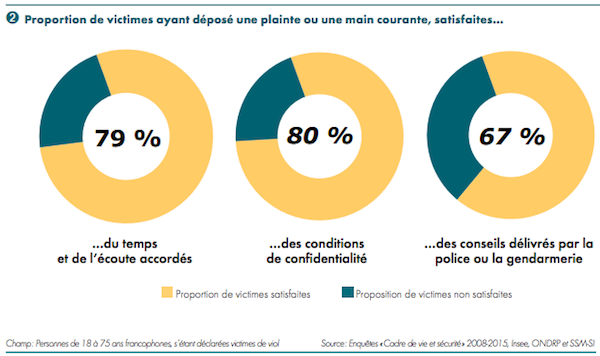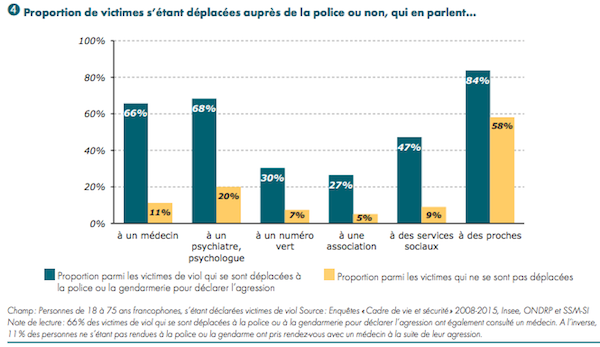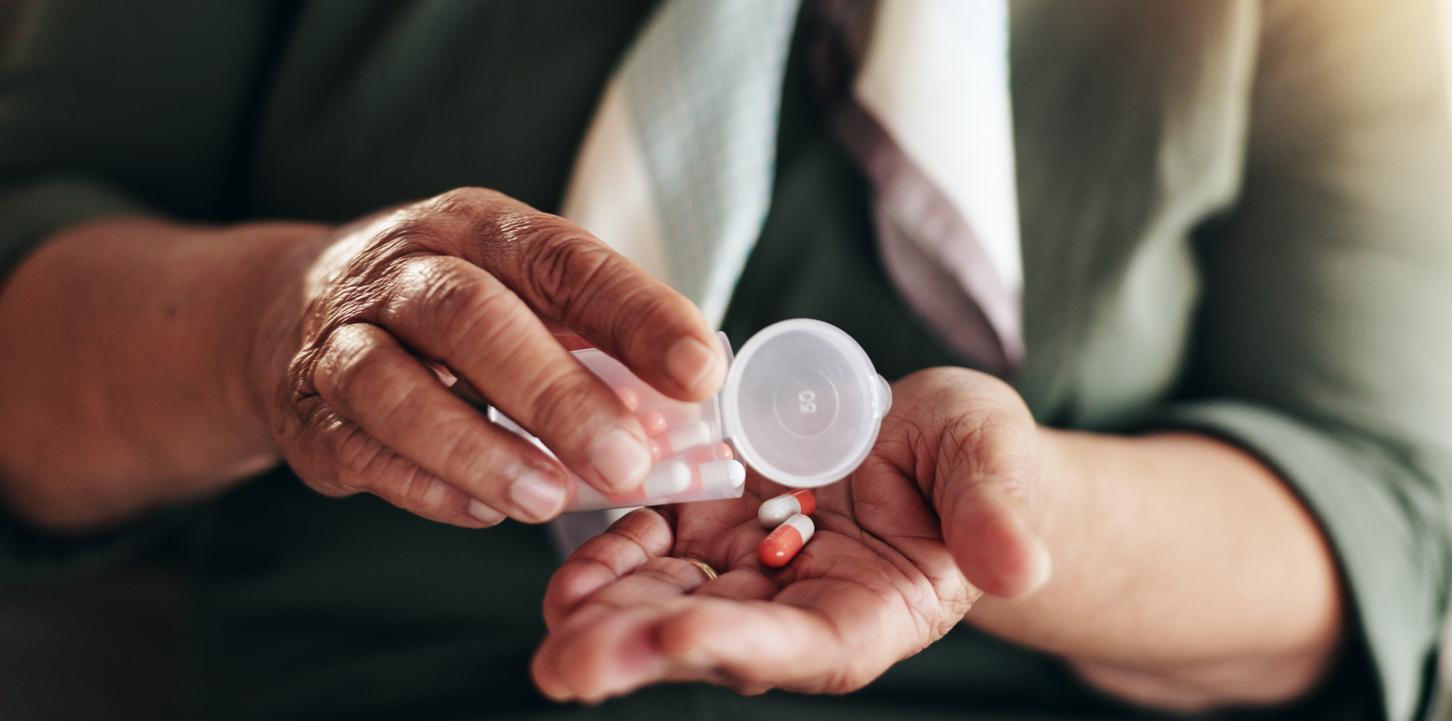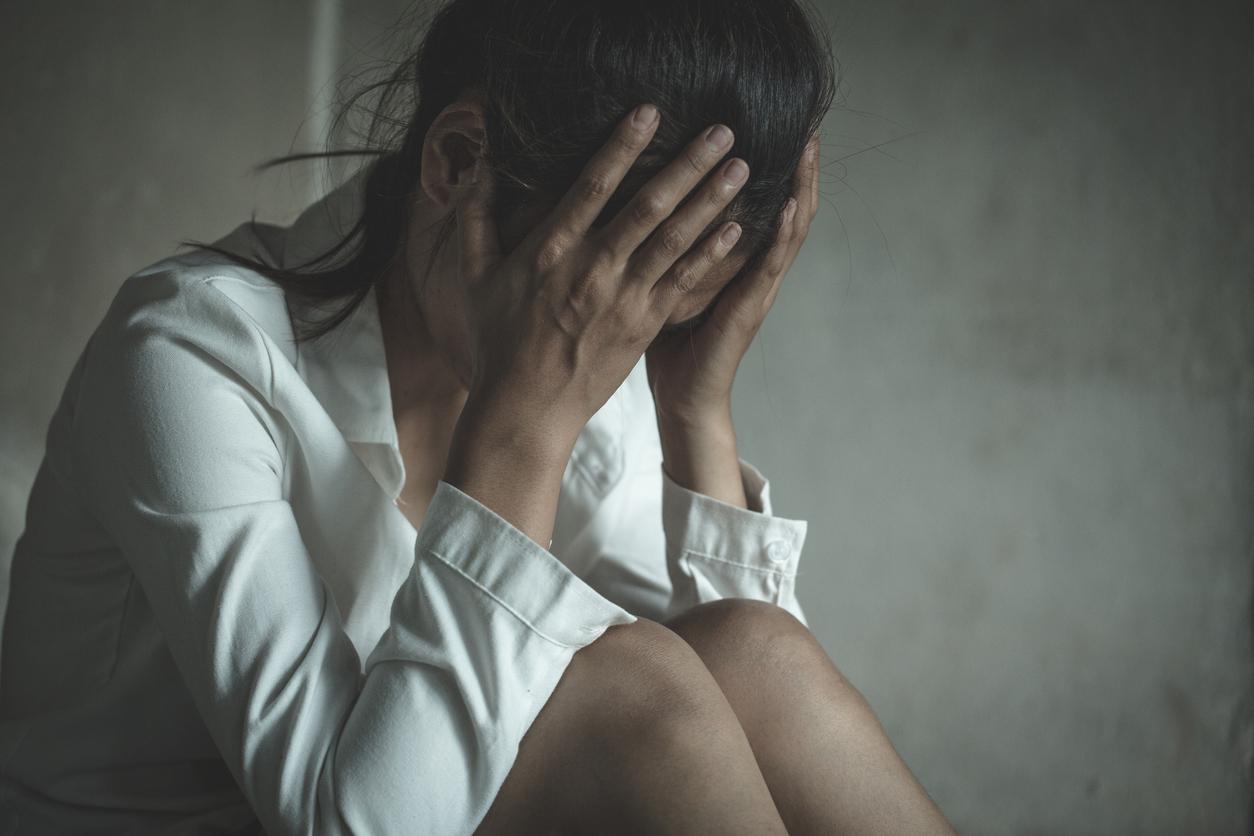Less than one in five rape victims go to the police or the gendarmerie following this assault, reveals a French investigation.

Rape is defined as any act of sexual penetration imposed on a person by violence, coercion, threat or surprise. Qualified as a felony and punished by 15 years of criminal imprisonment, it is the most serious sexual assault and probably the most traumatic for a victim. However, rape is one of the offenses least reported to the police or the gendarmerie.
This is indeed what emerges from‘a note published this Wednesday by the National Observatory of Crime and Penal Responses (ONDRP). In its “Living environment and security” surveys carried out between 2008 and 2015 (1), we thus learn that less than one in five people who declared themselves a victim of rape went to the police or the gendarmerie following the incident. this impairment (19%).
87% of victims do not file a complaint
And once there, the victims are very hesitant about what to do with their assault. Among them, only 13% file a complaint and 4% write a handbook. The taboo of rape therefore remains … On the other hand, the majority of people emerge satisfied with their testimony before the police, but it is unfortunately then that the hardest part begins. The so-called reconstruction period does not happen alone.
In 29% of cases, victims consult a psychologist or psychiatrist following their assault. 15% of victims contact an association or a victim support call center. More precisely, 12% call a toll free number.

63% tell a loved one about it
Finally, it should be noted that in these difficult times, the family often plays an essential role since nearly two thirds of victims tell their relatives (63%). Victims who come to the police or gendarmerie are more likely to confide in a third party as well. Two thirds of victims who went to the police consulted a doctor, compared to barely 11% otherwise.
Finally, nearly one in five rape victims never spoke about their assault (19%). This proportion is even reached a third for people who have been raped by an individual living with them.

(1) The data required to carry out this study come from the “Living environment and security (CVS)” victimization surveys carried out between 2008 and 2015 by INSEE, ONDRP and SSM-SI3. The study sample is made up of 290 French-speaking people residing in metropolitan France and aged 18 to 75 who declared having suffered rape during the two years preceding the survey (excluding the attempt) and whose information on the filing a complaint following this assault is exploitable.
.

















